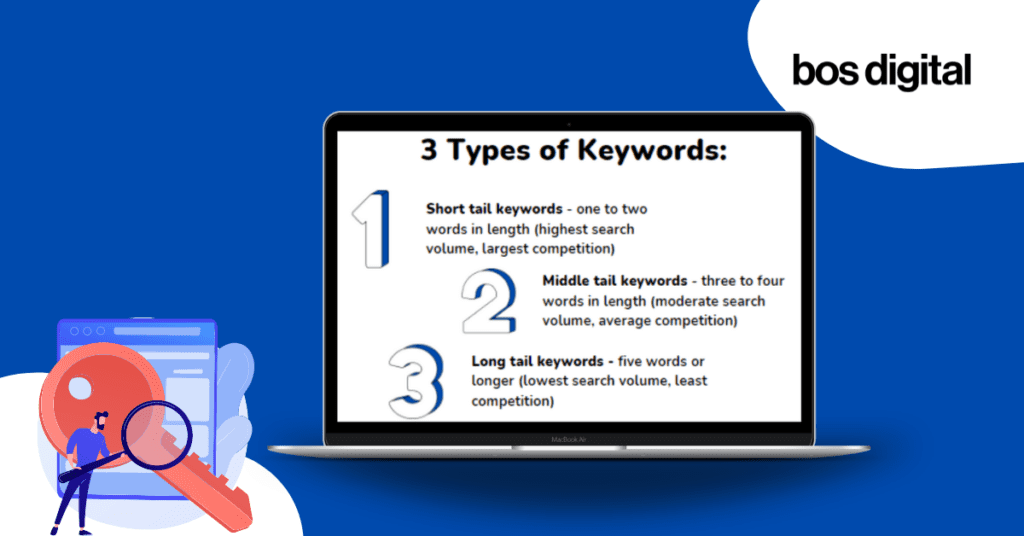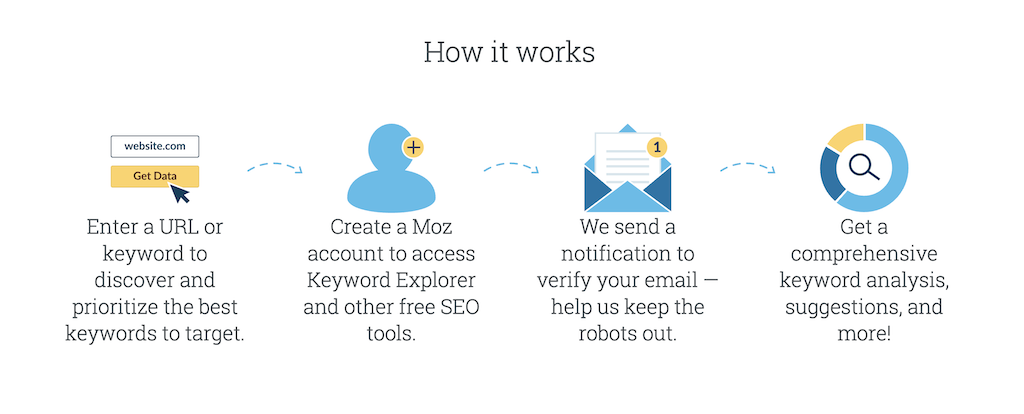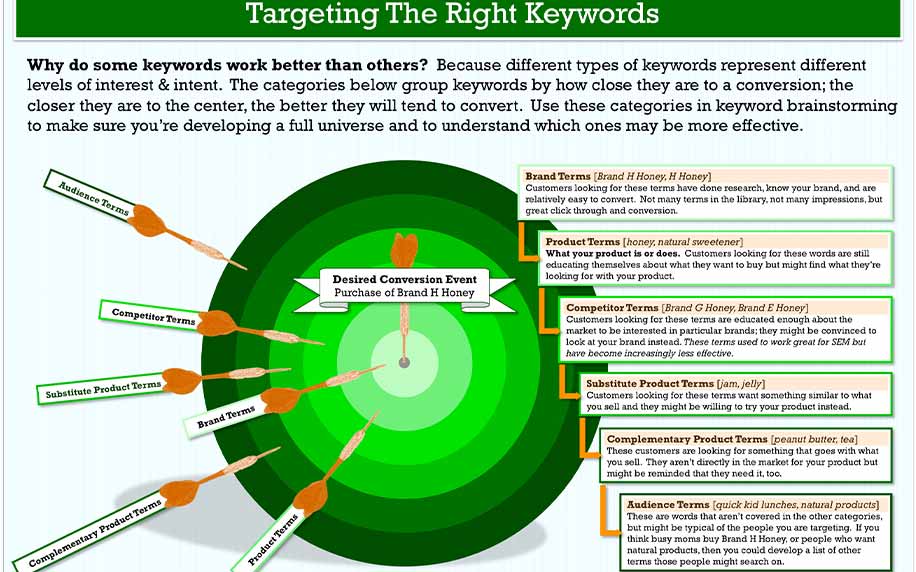Uncover the hidden gems in your neighborhood with local keyword research. Discover the key terms that will set you apart.

Image courtesy of via DALL-E 3
Table of Contents
Introduction to Local Keyword Research
Do you know what local keyword research is? If you are a business trying to dominate your market, this is a crucial concept to understand. Local keyword research involves finding the right words and phrases that people in your area use when searching online. By using these specific keywords, you can attract more local customers and outshine your competition. In this article, we will guide you on how to discover the perfect terms to help your business thrive in your local market.
What are Keywords?
In simple terms, keywords are the words that people type into search engines when they are looking for information. These words help search engines understand what a webpage is about so they can show it to the right people.
Why Are Keywords Important?
Keywords are crucial for businesses because they help more people find their products or services online. By using the right keywords, businesses can make sure that their website appears in search results when potential customers are looking for what they offer.
What is Local Keyword Research?
Local keyword research is all about finding the right words and phrases that people in your specific area use when searching for products or services online. Unlike general keyword research, which focuses on broader terms, local keyword research zeroes in on keywords that are relevant to a particular city or region. It helps businesses tailor their online content to attract local customers and dominate their market.

Image courtesy of bos.digital via Google Images
Benefits of Local Keyword Research
There are several advantages to conducting local keyword research for your business. By targeting keywords that are specific to your local area, you can attract more customers who are searching for products or services near them. This targeted approach can also give you a competitive edge over businesses that are not optimizing for local search terms. Additionally, focusing on local keywords can help you build trust with potential customers in your area, as they are more likely to find your business when searching for local services.
How to Find Local Keywords
When it comes to reaching your local audience, using the right keywords is crucial. But how do you find those magic words that will connect you with potential customers in your area? Let’s explore some effective strategies for discovering local keywords that will help your business stand out.
Using Google Suggestions
One simple way to uncover local keywords is by using Google’s auto-suggestions feature. Start typing a relevant term in the search bar, and Google will generate a list of popular search queries related to your input. Pay attention to the phrases that include your location or other local identifiers, as these can be valuable keywords to target.
Checking Competitor Keywords
Your competitors can be a great source of inspiration when it comes to finding local keywords. Take a look at their websites and marketing materials to see what keywords they are using. This can give you insight into the terms that are resonating with your target audience and help you identify any gaps in your own keyword strategy.
Utilizing Keyword Research Tools
Tools like Google Keyword Planner and Ubersuggest can be invaluable resources for uncovering local keywords. These tools provide data on search volume, competition level, and other key metrics that can help you choose the most effective keywords for your business. Experiment with different tools to see which ones work best for you.
Tips for Choosing the Best Local Keywords
When it comes to selecting the best local keywords for your business, there are a few key factors to consider. By choosing the right keywords, you can increase your chances of reaching your target audience and standing out from the competition. Here are some practical tips to help you choose the most effective local keywords:

Image courtesy of www.gosite.com via Google Images
Relevance
One of the most important aspects of selecting local keywords is relevance. Make sure the keywords you choose accurately reflect your business and the products or services you offer. Using keywords that are closely related to your business will help attract the right audience to your website.
Search Volume
Another crucial factor to consider when choosing local keywords is search volume. Look for keywords that have a high search volume, as this indicates that more people are using those terms to find businesses like yours. By targeting keywords with a high search volume, you can increase your chances of being discovered by potential customers.
Competitiveness
While it’s important to choose keywords with a high search volume, you also need to consider competitiveness. Selecting keywords that are too competitive may make it difficult for your business to rank well in search engine results. Strike a balance by choosing keywords that have a decent search volume but aren’t overly competitive, allowing your business to stand out among the competition.
How to Use Local Keywords
When it comes to reaching your local audience, using the right keywords is essential. Here’s how you can effectively incorporate local keywords into your website:
In Webpage Text
One of the best places to use local keywords is within the text of your website pages. Make sure to naturally integrate these keywords into your content to make it relevant to local searches. For example, if you’re a bakery in New York City, include phrases like “best cupcakes in NYC” or “top bakery in New York” in your web copy.
In Headers and Titles
Another important place to optimize with local keywords is in headers, titles, and meta descriptions. These elements provide search engines with context about your content, so be sure to include relevant local keywords to improve your visibility in local searches. Consider using terms like “New York City bakery” or “NYC cupcake shop” in these areas to attract local customers.
In Blog Posts
Creating blog posts that incorporate local keywords is a great way to boost your search engine ranking and attract local traffic. Write about topics that are relevant to your local audience and include local keywords throughout your posts. This not only helps with SEO but also establishes your business as an authority in your area. For instance, if you’re a spa in Los Angeles, write about “best spa treatments in LA” or “relaxation tips in Los Angeles” to target local customers.
Measuring Success
In the world of local keyword research, it is crucial to track the performance of the keywords you choose to determine their effectiveness. Measuring success allows you to understand what is working well and what might need adjustment in your strategy. Here, we will delve into how you can monitor your keyword performance and make informed decisions based on the data you collect.

Image courtesy of profiletree.com via Google Images
Using Analytics Tools
One of the most valuable tools for tracking keyword success is Google Analytics. This free tool provides in-depth insights into the performance of your website, including which keywords are driving traffic and conversions. By analyzing this data, you can identify the keywords that are resonating with your audience and those that may need to be reevaluated.
Google Analytics also allows you to monitor other key metrics, such as bounce rate, time on page, and conversion rate, which can give you a more comprehensive understanding of how your keywords are performing. By regularly reviewing this data, you can make informed decisions about which keywords to prioritize and which ones may need to be adjusted.
Adjusting Strategies
Once you have collected data on the performance of your keywords, it is important to use this information to refine your strategy. If you find that certain keywords are driving significant traffic and conversions, consider allocating more resources to optimize content around those terms. On the other hand, if some keywords are not performing as well as expected, you may need to reassess your targeting or explore new keyword opportunities.
By constantly monitoring and adjusting your keyword strategy based on performance data, you can ensure that you are effectively reaching your target audience and driving valuable traffic to your website. Remember, local keyword research is an ongoing process, and by staying proactive and responsive to data, you can continually refine your approach to dominate your market.
Conclusion
In this article, we have explored the world of local keyword research and how it can significantly impact businesses looking to dominate their market. By understanding the importance of finding the right keywords and implementing them effectively, businesses can attract more local customers and outperform their competition.
Local keyword research is not just about selecting random words to incorporate into your content; it’s about strategically identifying terms that your target audience is using to search for products or services like yours. By following the tips and tools provided in this guide, businesses can position themselves for success in their local market.
Remember, the key to successful local keyword research lies in relevance, search volume, and competitiveness. Choosing keywords that accurately reflect your offerings, are frequently searched for, and strike the right balance between popularity and competition is crucial for driving traffic to your website and converting leads into customers.
As you embark on your journey to dominate your local market through keyword research, don’t forget to measure your success. By tracking the performance of your chosen keywords and adjusting your strategies accordingly, you can continuously improve your online visibility and stay ahead of the competition.
So, what are you waiting for? Start applying these tips and techniques to your local keyword research efforts today and watch your business thrive in the local market!
Want to turn these SEO insights into real results? Seorocket is an all-in-one AI SEO solution that uses the power of AI to analyze your competition and craft high-ranking content.
Seorocket offers a suite of powerful tools, including a Keyword Researcher to find the most profitable keywords, an AI Writer to generate unique and Google-friendly content, and an Automatic Publisher to schedule and publish your content directly to your website. Plus, you’ll get real-time performance tracking so you can see exactly what’s working and make adjustments as needed.
Stop just reading about SEO – take action with Seorocket and skyrocket your search rankings today. Sign up for a free trial and see the difference Seorocket can make for your website!
FAQs about Local Keyword Research
Address common questions or misunderstandings readers might have about local keyword research.
How Often Should I Update My Keywords?
It is crucial to update your keywords regularly to keep up with changing search trends. The way people search for information online evolves constantly, so refreshing your keywords ensures that you stay relevant and continue to attract the right audience to your business.
Can I Use the Same Keywords as My Competitors?
Using similar keywords as your competitors can have both pros and cons. On one hand, if your competitors are successful with certain keywords, it may indicate that those terms are effective in reaching the target audience. However, using identical keywords can lead to increased competition for the same search terms. It’s advisable to find a balance by using some unique keywords alongside popular ones to stand out.
What If I Can’t Find Many Local Keywords?
If you’re struggling to identify local keywords, consider focusing on related terms or synonyms. Sometimes, using variations of your main keywords can still attract relevant traffic to your website. Additionally, exploring niche keywords specific to your industry or unique offerings can help you target a more specific audience even if the search volume is lower.







